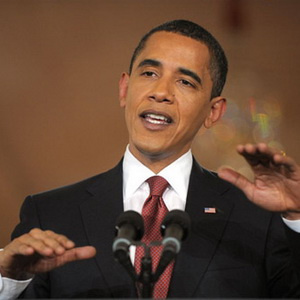The Shadow of Afghanistan and Pakistan over Iran’s Uranium Enrichment

United States will gradually recognize Iran as a nuclear state.
In a response to Obama’s remarks in Prague, Spokesman of Ministry of Foreign Affairs called U.S. president’s non-reference to [demands for Iran for] halting uranium enrichment a ’good but insufficient’ act. Iranian Diplomacy has interview Ali Bigdeli, foreign affairs’ analyst on the future of Iran’s nuclear program:
What is the message that you infer from Obama’s non-reference to halting uranium enrichment?
I have always believed that United States should acknowledge a nuclear Iran. It seems that they are getting closer to that point. With IAEA’s reports on Iran’s nuclear activities, West has reached no doubtless conclusions which are against Iran’s nuclear program. And there is an international tendency towards recognizing Iran as a nuclear state.
Currently the United States faces two major problems: first, Afghanistan and Pakistan which call for Iran’s cooperation; and second, peace in Middle East. It seems that Iran’s nuclear issue is overshadowed by these two challenges.
Barack Obama has vowed to pursue the elimination of nuclear weapons. How would this influence the course of nuclear activities followed by different countries around the world?
That [elimination of nukes] is definitely impossible. That is a symbolic remark. And it is most likely said to discourage Iran and North Korea from pursuing their nuclear programs.
However, Iran is now a valuable potential and regional power for United States. Therefore, I think that uranium enrichment and pursuit of nuclear program will be overshadowed by the challenges in Afghanistan and Pakistan and Iran will be recognized as a nuclear state.
Obama has stated that as long as the threat from Iran persists, United States intends to go forward with the missile-defense system. Isn’t there contradiction between Obama’s pledge to eliminate nuclear weapons and installing the missile defense shield?
The U.S. president is engaged in interplay with two powers: Israel and Russia. Some remarks are made to ensure Israel that it won’t be ignored because of excessive attention towards problems with Afghanistan. Others are made due to concerns about Russia’s missile power.
However, there really isn’t a connection between the missile shield and Iran’s nuclear program and such remarks have short-term use. At the present, United States’ main concerns are the situation in Afghanistan and Pakistan and the peace process in Middle East.

